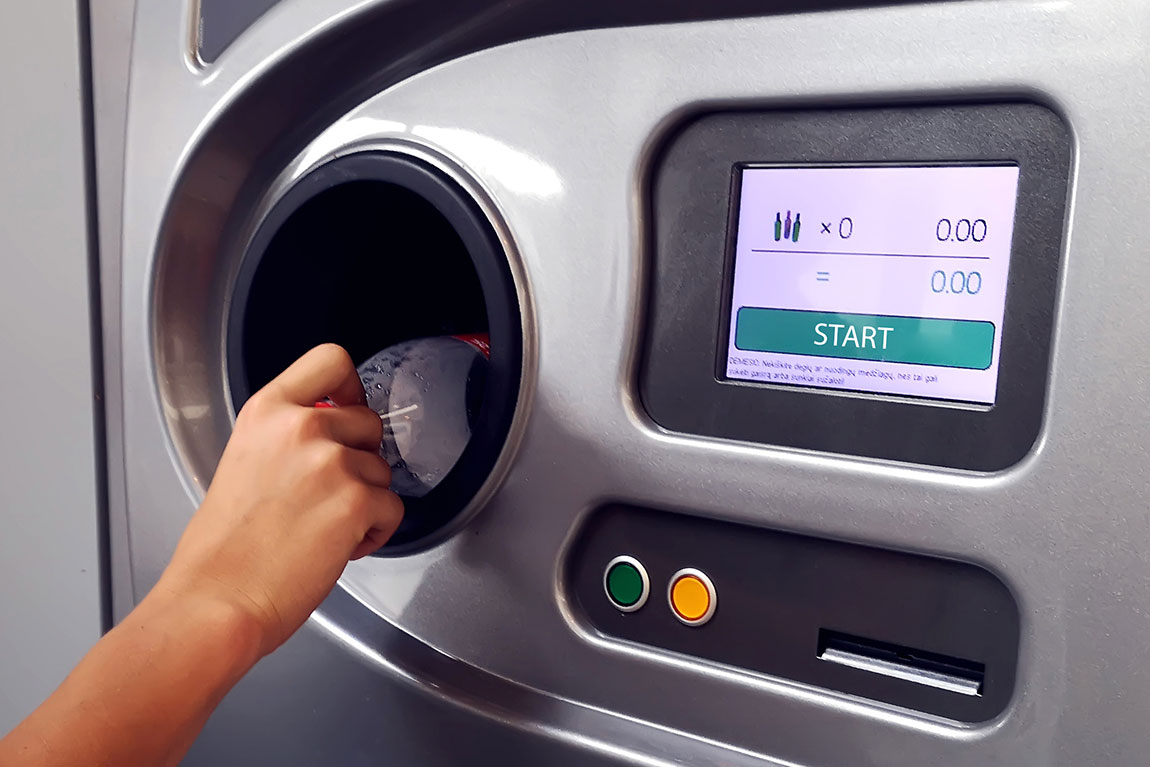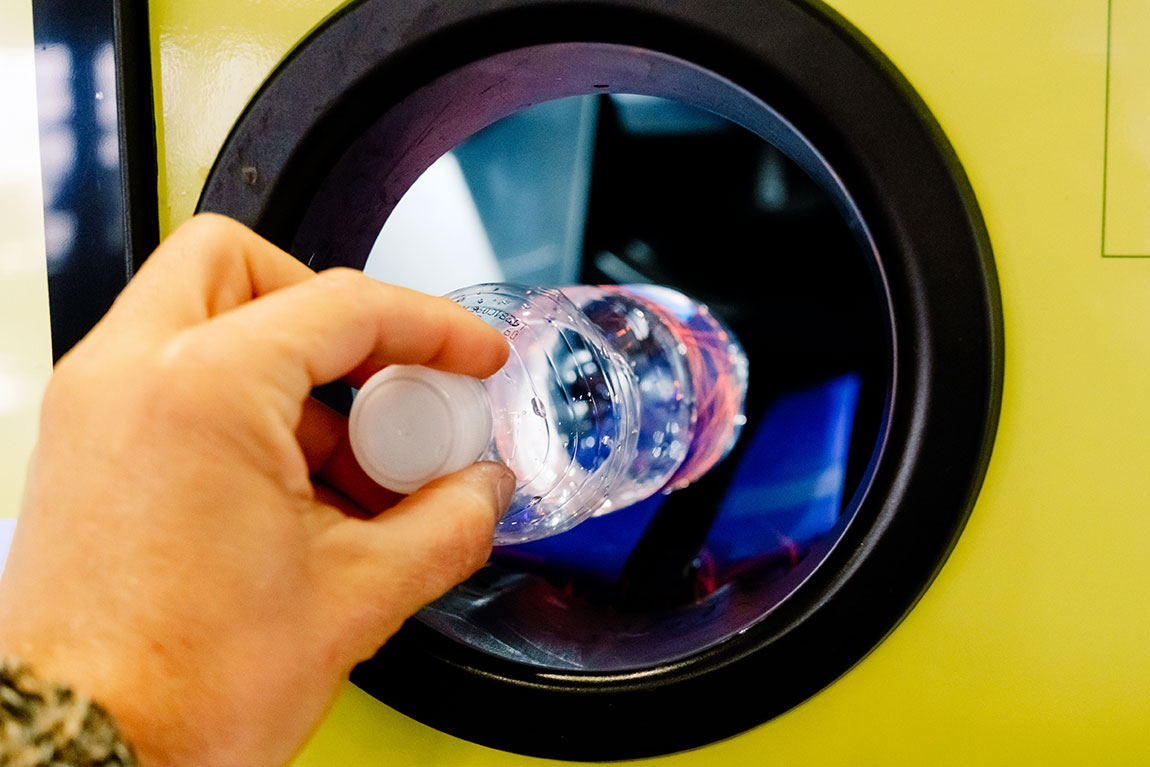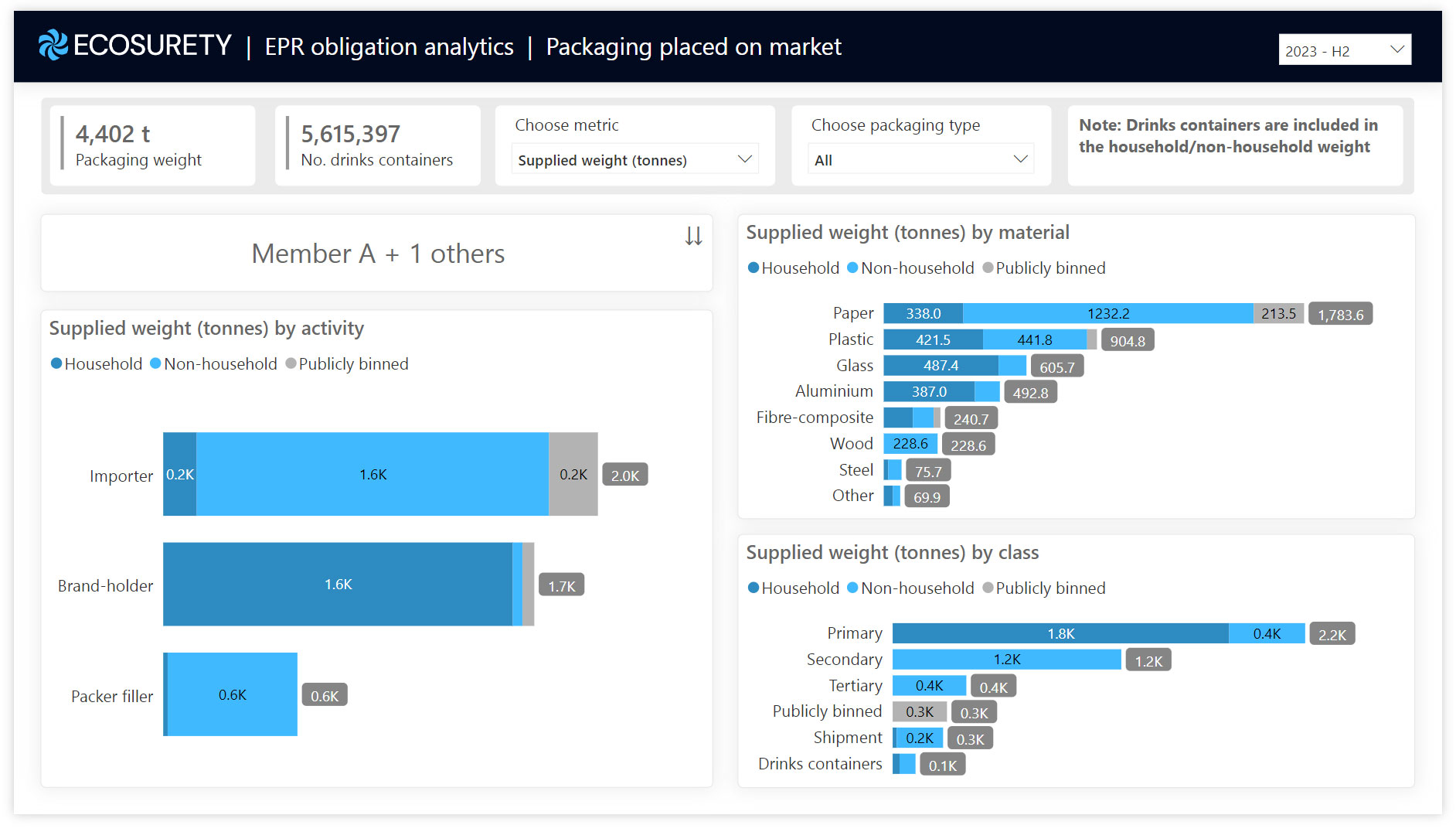Introduction
On 18 February 2019 the government released a consultation on Introducing a Deposit Return Scheme (DRS) in England, Wales and Northern Ireland.
The consultation considered the merits of introducing a DRS and sought the views of businesses that produce, sell or import drinks in single-use containers, local authorities, waste management companies, brokers and exporters and UK reprocessors, packaging compliance schemes, NGOs, consultants and charitable/voluntary bodies who have an interest in packaging and how packaging waste is managed in the UK, and the public.
Key information
The deadline for consultation responses was 13 May 2019.
You can view the original consultation on Introducing a Deposit Return Scheme (DRS) in England, Wales and Northern Ireland document by clicking here which contains the questions referenced below.
The Ecosurety response
This article outlines our full consultation response which we openly shared ahead of the consultation deadline to encourage other people to use it for their own response, if they were aligned with our views. We hope this encouraged wider participation to the consultation to maximise representativity of each stakeholder group. Please note that we only responded to the questions that were relevant for us to feedback on.
Question 5: Setting aside the details of how it would be achieved, do you agree or disagree with the proposal that local authorities should be required to collect a set of core materials for recycling?
Agree – local authorities should be required to collect a core set of materials.
Question 6: We think it should be possible for all local authorities to collect the core set of materials. Do you agree with this?
Agree.
Question 9: Do you have any other comments to make about Proposal 1? Please use this space to briefly explain your responses to questions above, e.g. why you agree/disagree with proposals.
For the concept of a set of “core materials” to work it will be important to keep “non-core” (hard to recycle or non-recyclable materials) out. The approach to labelling must be agreed across consultations.
Labelling will need to be unambiguous and binary indicating core or non-core. It is important to provide labelling of residual bins to reflect the non-core materials for the users to reduce the chance of contamination at source.
Question 10: Do you believe that all of these core materials should be included or any excluded?
Glass bottles and containers - Should be included in the core set
Paper and card - Should be included in the core set
Plastic bottles - Should be included in the core set
Plastic pots tubs and trays - Should be included in the core set
Steel and aluminium tins and cans - Should be included in the core set
Question 11: What, if any, other products or materials do you believe should be included in the core set that all local authorities will be required to collect?
Food and drinks cartons - Should be included in the core set
Plastic bags and film - Should be included in the core set
Other: Aluminium foil and aerosol cans - Should be included in the core set
Question 12: If you think any of these or other items should or should not be included in the core set immediately please use the box below to briefly explain your view.
It is vital that the core list of materials aligns with the “approved list” under the reformed UK producer responsibility regulations for packaging.
Question 15: Do you agree that the core set should be regularly reviewed and, provided certain conditions are met, expanded?
Yes.
Question 16: Do you believe that the proposed conditions a) b) c) and d) above are needed in order to add a core material?
Yes.
Question 17: Do you have any other comments to make about Proposal 3?
The agreed core set of materials need to be controlled at national level, with an appropriate review process and notice being given prior to new materials being added. Any such proposed new materials will have to be accompanied by evidence to satisfy the specified test conditions for inclusion.
This also needs to be directly linked to labelling but will not restrict local authorities to work with schemes to develop new services over and above the core materials.
The core set / approved list of materials should be defined by a centralised Packaging Management Organisation, formed as a consequence of reformed EPR for packaging. See more information here: https://www.ecosurety.com/media/661800/ecosurety-centralised-competition-model.pdf?
Question 18: Which aspects of the proposal do you agree and disagree with?
(i) at least a weekly collection of food waste - Agree
(ii) a separate collection of food waste (i.e. not mixed with garden waste) - Agree
(iii) services to be changed only as and when contracts allow - Disagree
(iv) providing free caddy liners to householders for food waste collections - Agree
Question 19: Are there circumstances where it would not be practical to provide a separate food waste collection to kerbside properties or flats?
No.
Question 20: Do you have any other comments to make about Proposal 4?
The potential for a core set of materials to collect being changed by the oversight body should be written into contracts to speed up the process of services changing across England.
We recognise the need for caddy liners but have not formed a view of who and how these liners are supplied to residents. The government should seek to explore the opportunity for retailers to move single-use plastic bags, such as those short-life bags used for fruit/vegetables/meat, to be used as liners if certified compostable. Local authorities may also need to provide caddy liners for citizens who do not use the packaging described above.
Any caddy liners used must be EN 13432 certified, and preferably tested to the OK Compost Home test protocol. The use of conventional plastic is likely to contribute to an increasing plastic burden on the soil because it is impossible to be 100% certain that conventional plastic material is removed.
Question 24: Which aspects of the proposal do you agree or disagree with?
(i) a free garden waste collection for all households with gardens - Agree
(ii) A capacity to 240l (bin or other container eg sack) - Agree
iii) A fortnightly collection frequency (available at least through the growing season) - Agree
(iv) ability to charge households for additional capacity/collections/containers over the set minimum capacity requirement - Agree
(v) this new requirement to start from 2023 (subject to funding and waste contracts) - Agree
Question 26: Do you agree the proposed approach to arrangements for separate collection of dry materials for recycling to ensure quality?
Yes.
Question 27: What circumstances may prevent separate collection of paper, card, glass, metals and plastics? Please be as specific as possible and provide evidence.
There should be no circumstances that prevent the separate collection of those identified materials. Collection systems are well established that deliver these materials separately, and they can be tailored to the needs of particular material streams. It is a myth that co-mingled collection delivers better yields, participation and satisfaction – contamination losses at MRFs and further cleaning up losses at reprocessors are not fully captured by the system and the public are largely unaware of this.
If a full costs and impacts assessment was made, the case for separate collection would be further reinforced and if transparency in the system extended to full public awareness of what actually happens after collection, the notion of the ‘convenience’ of the co-mingled collection would soon be debunked.
Question 28: Do you have any other comments to make about Proposal 8?
Several years ago, the Resource Association established that there was a clear and substantial cost to reprocessors in dealing with the impact of contaminated feedstock arriving at their factory gates. Our Costs of Contamination report noted a range of costs attributed to different materials streams. Much of this cost derives from cleaning up materials from MRFs derived from co-mingled collections.
Question 29: Do you agree or disagree with this proposal?
Agree – bin colours should be standardised for all waste streams.
Question 30: There would be potential for significant costs from introducing standardised bins colours from a specific date. What views do you have on a phased approach or alternative ways to standardising the colours of containers for different materials?
Phased approach 1 – as and when waste contracts are renewed.
Question 32: Do you agree or disagree with the proposal to publish statutory guidance?
Agree – government should publish statutory guidance.
Question 33: We propose reviewing the guidance every few years, revising it as required and then allowing sufficient lead-in time to accommodate the changes. Do you agree or disagree with this timescale?
Agree.
Question 34: Subject to further analysis and consultation we propose to use the guidance to set a minimum service standard for residual waste collection of at least every alternative week Do you agree or disagree with this proposal?
Disagree – it should be less often.
Question 35: Do you have any other comments to make about Proposal 10?
Quality and the needs of the end market should be the primary focus, understanding the actual need of the real recycler, the reprocessor. Recycling should therefore be measured at the point of entry to the reprocessor, not the sorting or collection point.
Question 37: What information do householders and members of the public need to help them recycle better?
Clear labelling that aids not confuses, with regard to the actual recyclability of products and materials. Eliminate ‘check locally’ as soon as possible, it is undermining good efforts. Labelling will need to be unambiguous and binary indicating core or non-core materials.
Localised communications to support national campaigns and generate a new spirit of civic engagement and solidarity in which not recycling becomes socially unacceptable.
Much better information on what happens to recycling and where it ends up, provided to the public in engaging ways.
Clear and unambiguous labelling and standard containers or systems.
For the concept of a set of “core materials” to work it will be important to keep “non-core” (hard to recycle or non-recyclable materials) out of it and this will also need to match the approach to labelling.
Information should not be limited to householders but also include business employees and final consumers of household, household like packaging.
Question 41: Do you agree or disagree that introducing non-binding performance indicators for waste management and recycling is a good idea?
Agree. We believe the government should consider statutory targets if the changes proposed here and in EPR reform for packaging do not have the desired impact. Payments to local authorities from producers of packaging should be based on the quality and quantity of material collected in the first instance to motivate local authorities to collect quality material and hit the non-binding performance indicators.
Question 42: Do you agree or disagree that the proposed indicators are appropriate?
Agree.
Question 51: Do you agree or disagree that businesses, public bodies and other organisations that produce municipal waste should be required to separate dry recyclable material from residual waste so that it can be collected and recycled?
Agree.
Question 52: Which of the 3 options do you favour?
Option 3 mixed dry recycling, separate glass recycling, separate food recycling.
Question 53: We would expect businesses to be able to segregate waste for recycling in all circumstances but would be interested in views on where this may not be practicable for technical, environmental or economic reasons.
Yes – it should be practicable to segregate waste for recycling in all circumstances.
Question 54: Should some businesses, public sector premises or other organisations be exempt from the requirement?
No.
Question 56: Do you agree or disagree that businesses, public bodies or other organisations that produce sufficient quantities of food waste should be required to separate it from residual waste so that it can be collected and recycled?
Agree.
Question 57: Do you agree or disagree that there should be a minimum threshold, by weight, for businesses public bodies or other organisations to be required to separate food waste for collection?
Agree.
2021 consultation on consistency in household and business recycling in England
On 7 May 2021 Defra released a second consultation on consistency in household and business recycling in England. You can read our essential summary of that consultation by clicking here.

Robbie Staniforth
Innovation and policy director
Having spent years building an intimate understanding of the industry’s policies and politics, Robbie uses this knowledge to help shape new legislation and oversees Ecosurety’s growing portfolio of cross-industry innovation projects .



